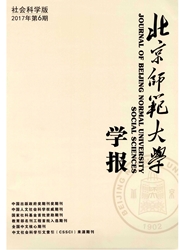

 中文摘要:
中文摘要:
采用整群取样法对北京市1164名流动儿童,525名当地儿童及流动儿童主要来源省份的568名农村儿童进行问卷调查,考察流动儿童城市适应现状及其与教育安置方式的关系。结果表明,与北京当地儿童相比,流动儿童社会文化及心理适应不足,但与农村儿童相比,他们的社会文化适应更强,但心理适应不佳;公立学校流动儿童在社会文化和心理适应上都明显优于打工子弟学校儿童;控制了性别、年龄、来京时间及家庭经济地位等影响因素后,教育安置方式对流动儿童城市适应仍然有显著预测作用,公立学校流动儿童社会文化适应更好,自尊更高,且更少产生孤独、抑郁等心理适应问题。
 英文摘要:
英文摘要:
The present study carries out a questionnaire investigation of the 1,164 migrant children, 525 local children, and 568 children from the provincial countryside, in order to explore their city adaptation condition and the relation to their educational settings. The result shows that, compared with the local children in Beijing, the migrant children are insufficient in social cultural and psychological adaptation, but better than those from the provincial countryside in social cultural adaptation and worse in psychological accommodation. The migrant children in public school are much better in social cultural and psychological adaptation than those in the schools set up especially for migrant children. In considering such factors as their sex, their age, the time spent in Beijing, and the family finance state, there is still a significant forecasting effect from the educational settings upon the migrant children: Those from the public schools have a better social cultural adaptation; their self--respect is higher; and they feel less lonely or depressed.
 同期刊论文项目
同期刊论文项目
 同项目期刊论文
同项目期刊论文
 期刊信息
期刊信息
